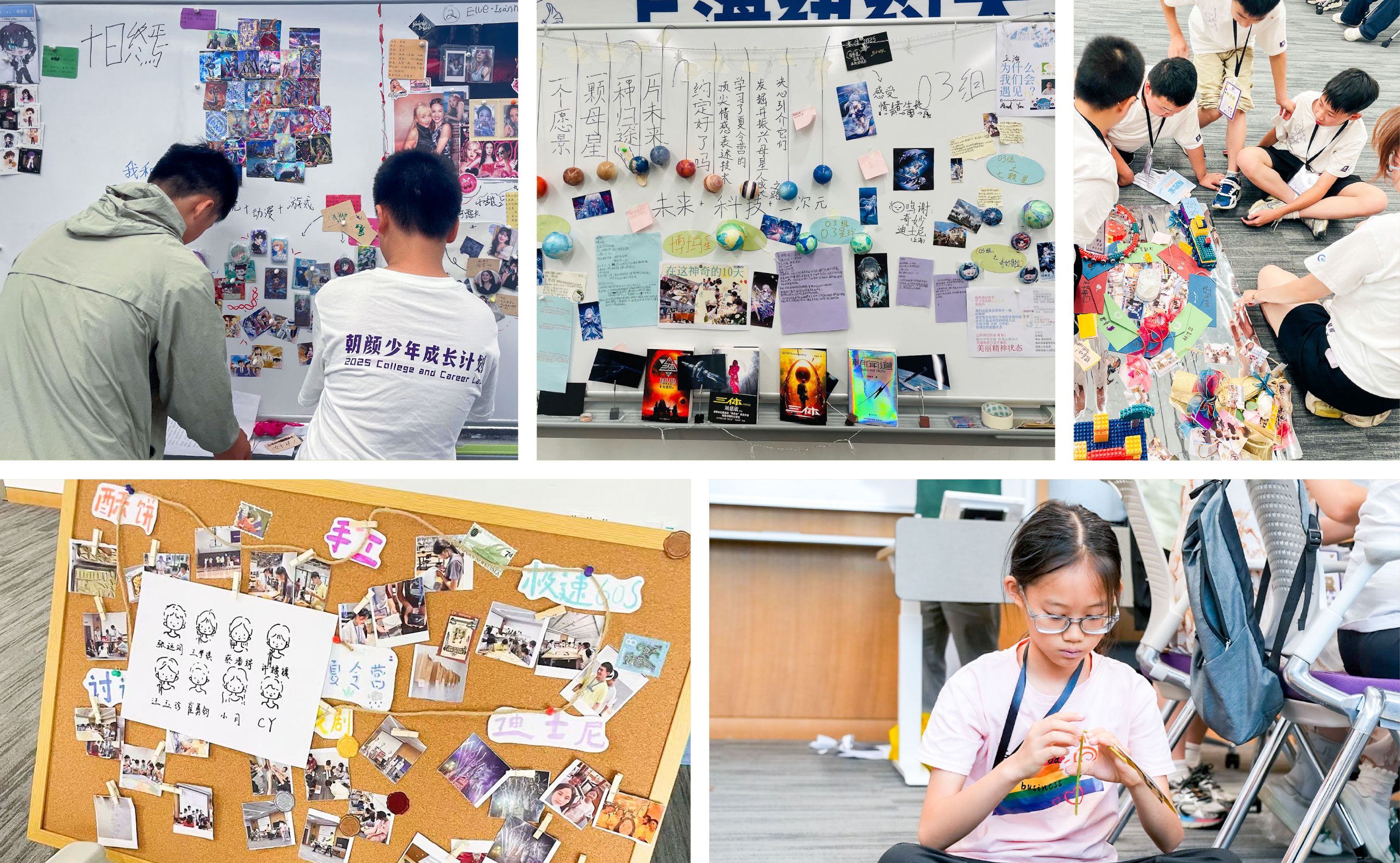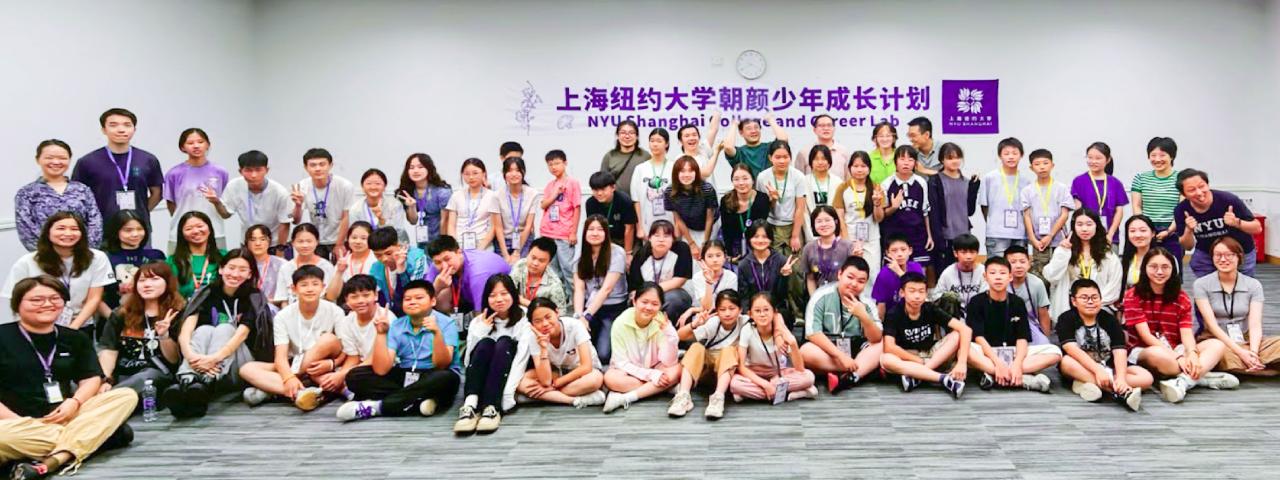
In July, NYU Shanghai’s fourth annual College and Career Lab (CCL) welcomed 42 children of migrant workers, aged 10 to 14, for a two-week journey of self-expression and growth. Under the mentorship of camp counselors from around the world and China, the children explored storytelling, theater, creative arts, and the city—experiences designed to help them navigate the transitional period of their lives as they prepare to return to their hometowns after spending their childhood in Shanghai.
Hosted by NYU Shanghai’s Community Engaged Learning Office (CELO), the free camp is rooted in “self-exploration, drama expression, and emotional guidance.”
The fourteen NYU Shanghai undergraduate students from the US, Mongolia, and across China who volunteered as counselors underwent a four-day intensive training in child development and social-emotional learning, led by NYU Shanghai alumna Zhang Yaqi’ 23 and drama educator Xiao Hua. All camp counselors were required to have taken “Social and Emotional Learning and Intervention for Migrant Youth,” a summer session course taught by psychology professor Cui Lixian with guidance from education scholar and NYU professor Hua-Yu Sebastian Cherng.
For both the children and the university students, the experience was more than a summer camp—it was a chance to reimagine identity, companionship, and education.
Zhang Yaqi ’23
Curriculum Coordinator, former counselor

While designing the curricula, I drew on human development theories from my studies at Harvard, shifting my focus from What can we teach them? to What kind of education do they truly need?
After teaching in rural Yunnan, I realized educators, too, need support—especially in under-resourced, isolated environments. That shaped my vision for CCL. It wasn’t just for the children; it became fertile ground for young adults to engage in public service.
This year, we focused on children facing instability, helping them navigate separation, emotional turbulence, and self-efficacy. We invited older peers to share their experiences. I also integrated AI-related activities. At its core, education is about human connection. Curriculum design is about shaping those interactions so children engage deeply, while counselors learn to adapt and grow.
Min Yuxiang ’28, Camp Counselor
Major: Neural Science ’28
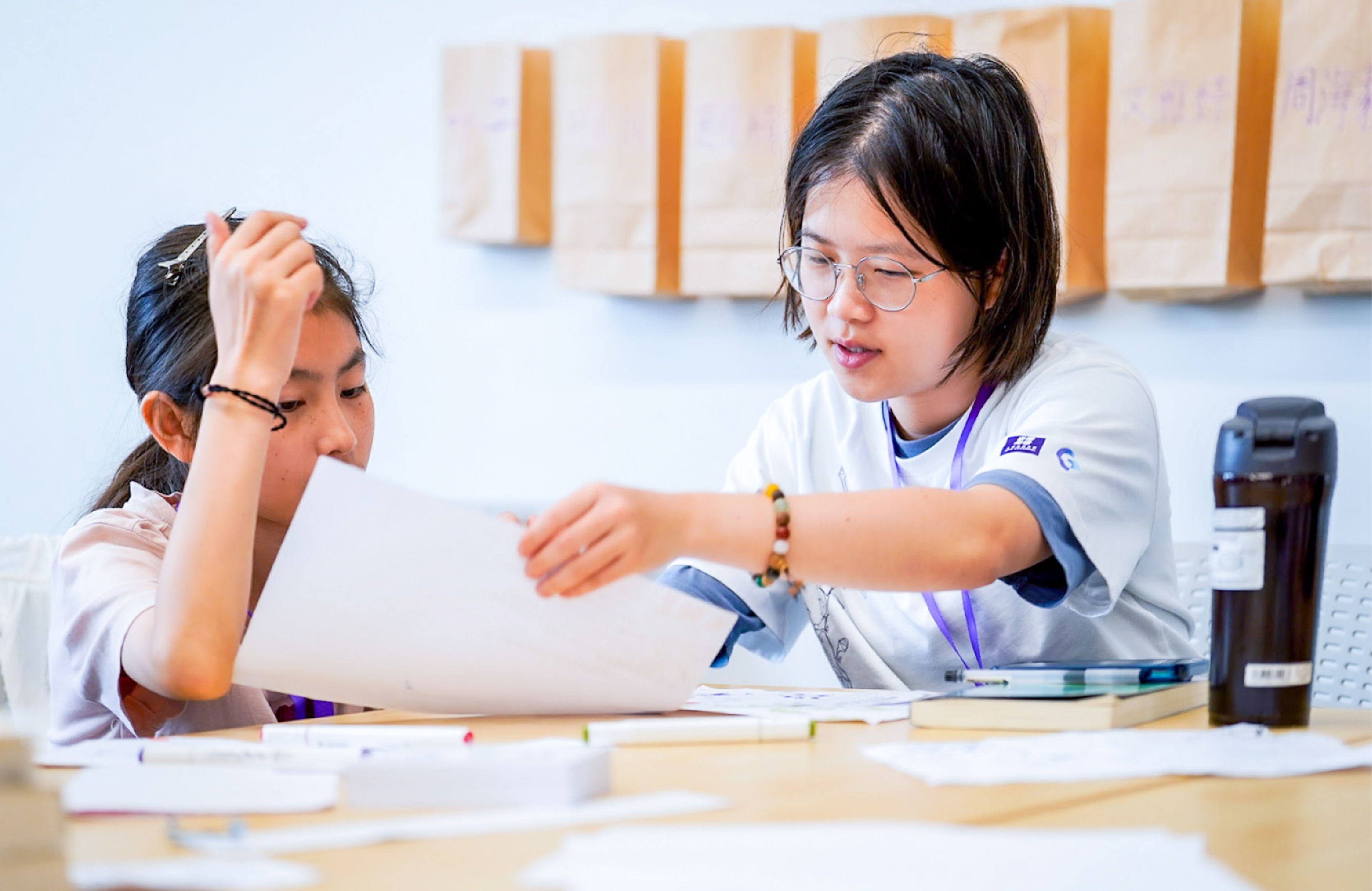
I joined CCL, curious about how drama therapy and social-emotional learning could help kids understand themselves and others. My group—rising 7th and 8th graders—bonded over anime, sci-fi, and gaming.
As we shared our stories, I shared my own short-lived esports dream, my struggles with homework burnout, and finding belonging in Shanghai’s Lingang area. They connected my experiences to their own, and our conversations became more open.
At first, I tried to manage everything closely. But when I stepped back, the discussions flowed more naturally. On the final day, a ten-year-old girl calmly explained how she navigates family tensions while nurturing her hobbies. Her resilience—“I’m used to it; it’s okay”—stayed with me. Age doesn’t dictate emotional intelligence; we all have something to learn from each other.
Xu Chuyan ’27, Camp Counselor
Major: Social Science & Business and Finance
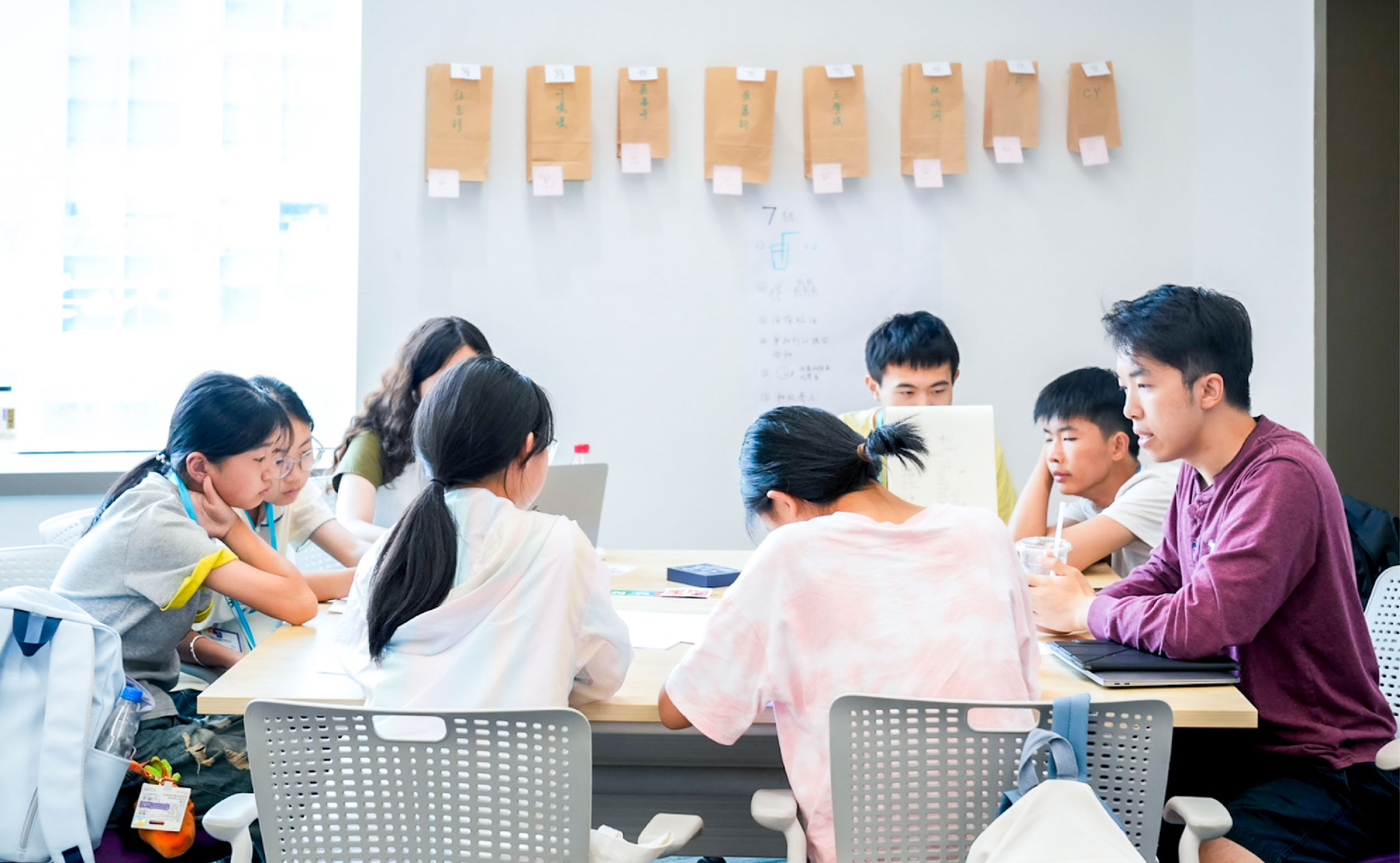
At CCL, I embraced the English definition of “counselor”—a trained person who supports through listening. Guided by my own mentorship experiences and Professor Cui’s lessons on “interpersonal curiosity,” I connected with the children quickly.
They were reserved at first, but soon began sharing their favorite celebrities, dreams, and uncertainties. My counselor partner studied science; I study social science and finance. Together, we could show the kids there’s no single “right” path.
Enkhlin Erdenebat ’26, Camp Counselor
Major: Social Science
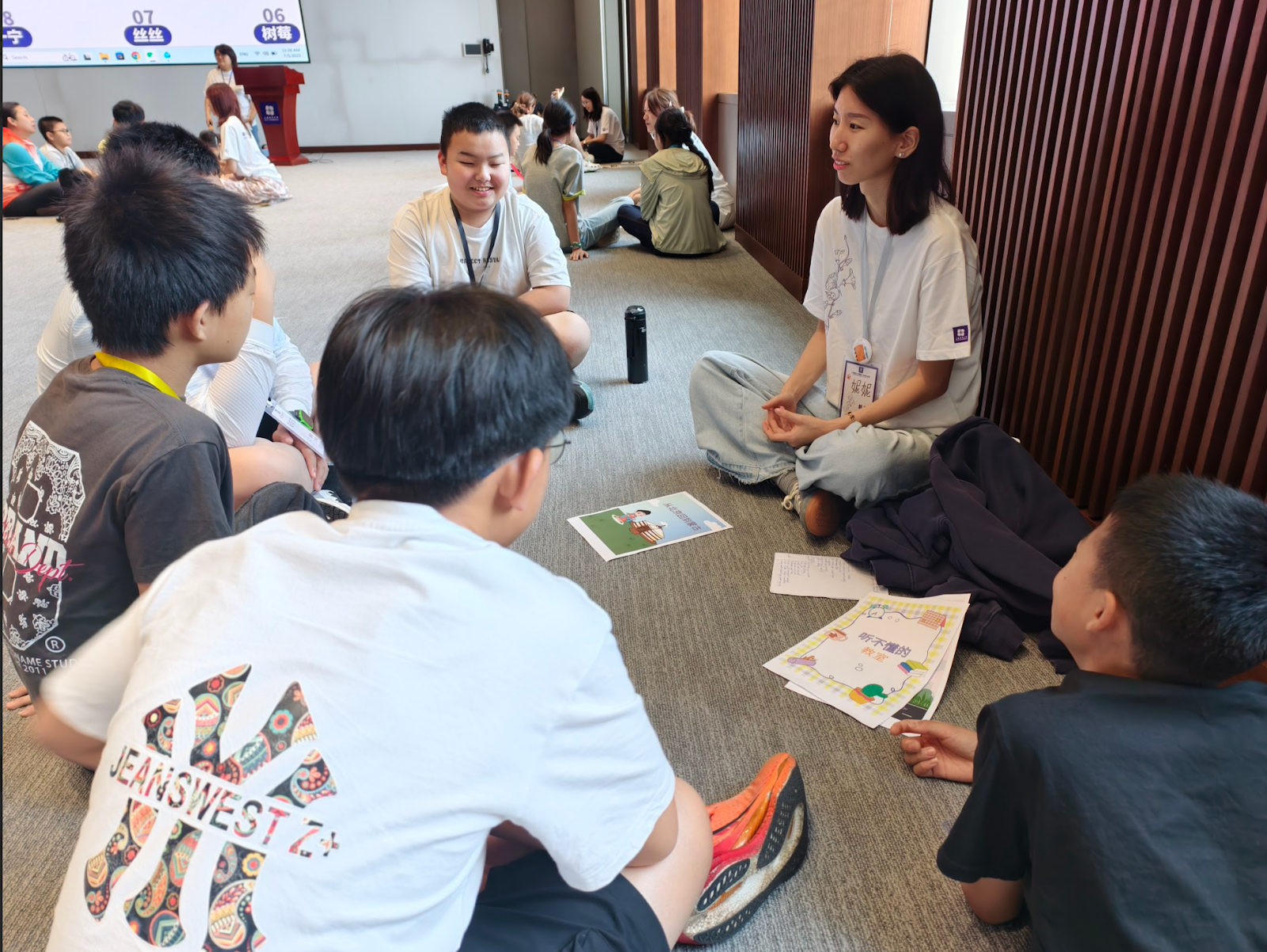
I lived in China for three years as a child before moving back to Mongolia at age six. When I started school in Mongolia, some kids teased me, but later we became friends. I shared this story with the campers to show that what makes us feel different can become our strength.
My group had six kids, aged 13–14, from Anhui, Hunan, Jiangsu, and Shandong. Though born outside Shanghai, they’d lived here for years and saw it as home. Their biggest uncertainty was whether they’d stay for high school without a Shanghai hukou.
The kids were curious about my background—asking if Mongolians ride horses to school or live in yurts—and they taught me Chinese slang in return. As we shared stories, one boy doubted his story was “good enough.” With encouragement, he shared—and placed in the top three. That moment reminded me that educational equity is also about self-worth.
One girl in my group always asked “why.” When I finally asked why she asked so many questions, she replied, “Because I don’t know the answer.” That simple truth hit me: adults often stop asking questions out of fear, and that fear holds us back.
I thought I’d spend the camp guiding them, but they ended up teaching me patience, presence, and the power of small acts of care. Saying goodbye at the closing ceremony, seeing tears in their eyes, reminded me that impact doesn’t always take years—it just takes sincerity.

